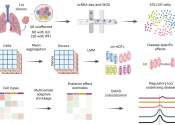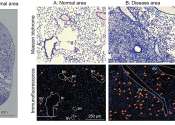'Sweat sticker' diagnoses cystic fibrosis on the skin in real time
A Northwestern University-led research team has developed a novel skin-mounted sticker that absorbs sweat and then changes color to provide an accurate, easy-to-read diagnosis of cystic fibrosis within minutes.
Mar 31, 2021
0
42








